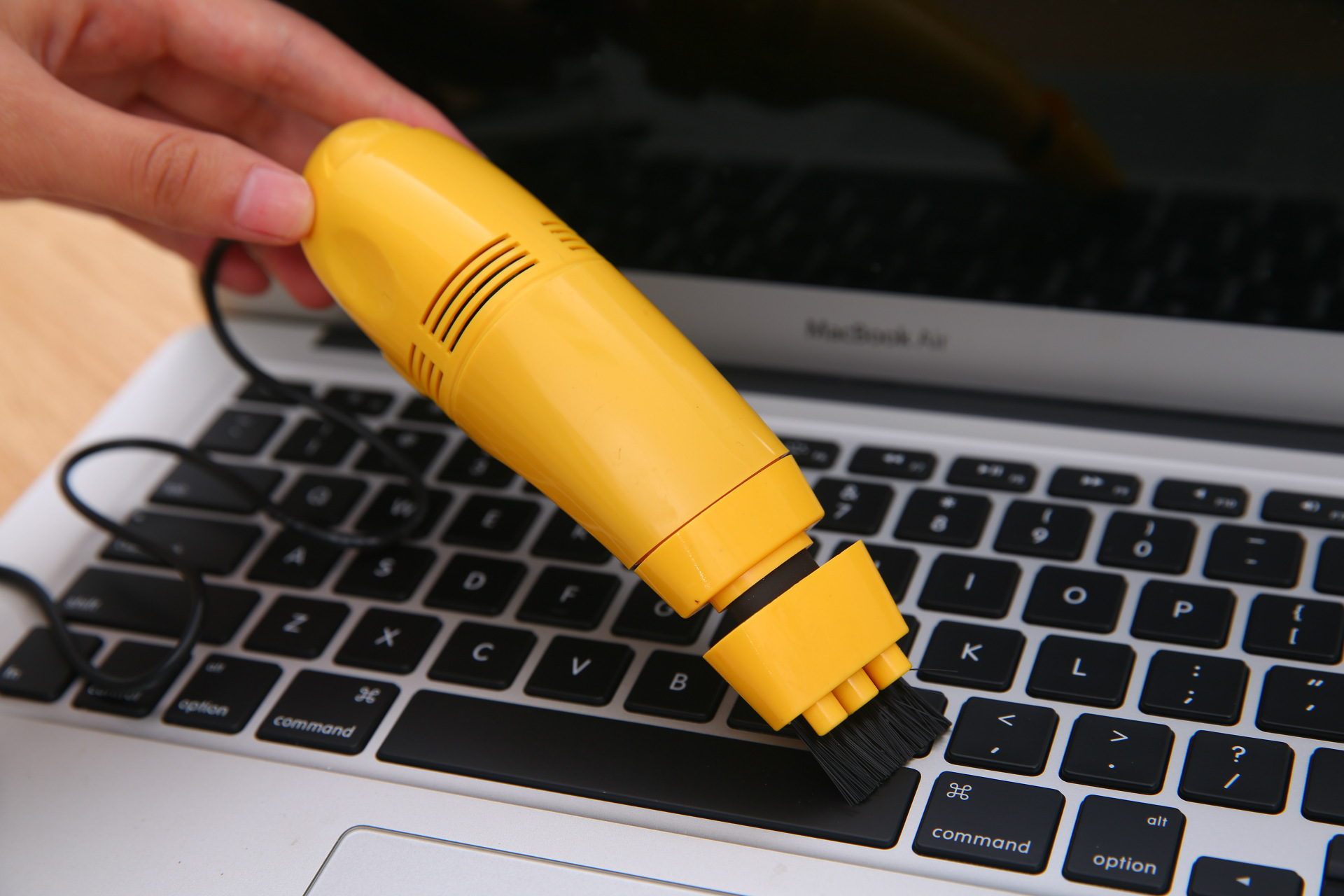


When using canned air, don’t hold the can upside down, as you can likely spray liquid onto the surface (which is definitely a ‘no-no’). In turn, this will cause the internal pressure of the can to drop, decreasing the spray force. Spraying for too long or spraying continuously will cause the can to cool down. Spray in short bursts about three to five-seconds long at room temperature.
Computer keyboard cleaner spray how to#
🙂 How to Safely Use Canned Air For Cleaning So you can blast dirt away, completely guilt-free. While that was true about 20 years ago, air dusters no longer contain any materials that negatively impact the ozone layer. Do Air Dusters Harm the Ozone Layer?īecause it’s a spray can, it’s natural to be concerned that compressed air cans may cause harm to the ozone layer. If you try using an air compressor on your keyboard, the high pressure and chemicals will likely damage it.Ĭanned air, by contrast, uses lower pressure and chemicals that (when used correctly) won’t damage your sensitive electronics. While canned air may frequently be called ‘compressed air’, don’t make the mistake of substituting canned air with an air compressor.Īir compressors use much higher pressure and are meant for jobs such as filling the tires of your car.

Here’s everything you need to know about the ways you can use canned air for cleaning! While this is the case, there are many other uses for these handy cans you may have never heard about…until today! Traditionally, air canisters are shown to be the best method to clean your keyboard. Essentially, they provide a pressurized air blast that knocks dirt and dust loose when cleaning. They are all the same thing and perform the same function. You may also hear the terms “compressed air” or “air in a can” used when referring to air dusters. Have you ever wondered how to really clean your keyboards and camera lenses without damaging them (and without using water)? The answer: canned air!Ĭanned air has many helpful uses for easy cleaning such as dusting surfaces, like keyboards and sensitive electronics, that you don’t want to expose to moisture.

Unless you have been living under a rock, you probably know that electronics and liquid never go together.


 0 kommentar(er)
0 kommentar(er)
